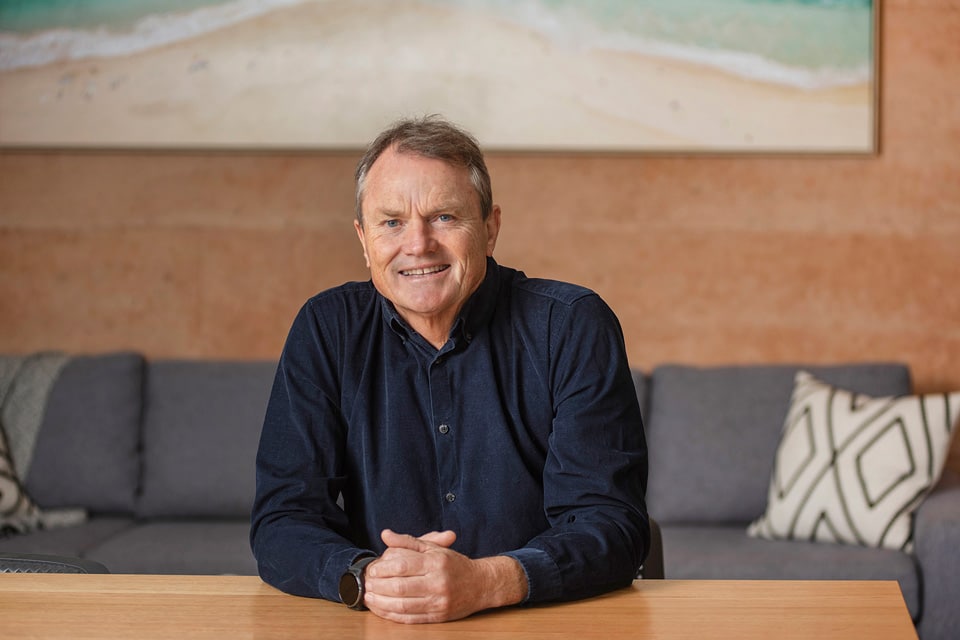What a health scare taught me about the importance of succession thinking

In mid 2008 the Global Financial Crisis was in full swing. Even though our business had done very well in the preceding five years, the challenges thrown up by this economic event were starting to give me some concerns.
Our business – Acquire Technology Solutions (acQuire) – is a software company in the field of geoscientific information management. My role as the Owner-Leader of acQuire is very demanding. acQuire is a small to medium enterprise (SME) with offices in Perth, Brisbane, Calgary and Santiago. At that time, we were growing at around 50% per annum and our products were in high demand. We had around 80 people in the business; in 2003 we had 15 people and no international offices. Although we’d had this strong recent growth, the Global Financial Crisis was starting to impact our pipeline.
Then one afternoon in mid-July, I was in my office chatting with Craig about a new product. We were debating ideas about its design. Lauren, our receptionist, put a call through from my wife, Debbie. Before she spoke a word I heard her choke back tears. I asked where she was and what was wrong. She struggled to say, ‘Sammy doesn’t know who I am.’ Sammy is our son, who was 11 at the time. He was in an ambulance on the way to the emergency department. This was his first epileptic seizure. Four months prior to this, Deb had been diagnosed with lupus. Although it is unusual for lupus to be life threatening, her father died of nephritis (a lupus complication of the kidney). So this gave us great cause for concern.

As the health of family members deteriorated around me and the demands of the GFC increased, my anxiety rose significantly. I increasingly struggled to reconcile supporting my family with dealing with the demands of my business. I called a meeting with the owners of acQuire – the three fellow shareholders of the company – and asked, ‘What do we do now? I might have to become a primary carer.’ Life happened to me with Debbie’s and Sam’s diagnoses, and I had several big lessons:
- Life events can affect you at any time, so make your business resilient and able to deal with them. Don’t put it off to the future. Do it now.
- I was too central to all that was going on. The impact on the business was going to be significant because I had too many core roles.
- Selling a business while in a reactive state is not wise. As owners, we discussed the idea of selling. However, I was not at my best to contribute to the big thinking required. I needed to do this thinking when things were going well.
We made it through these challenging times, and I continued as an Owner-Leader of acQuire. However, in the subsequent years we began implementing strategies that would drive us to be more resilient while meeting the aspirations of the owners.
This brings me to the importance of Succession thinking, which is an SME business-building approach to help you build a resilient business – a business that can be successful beyond you. A business that can create sustained value and deliver long-term success. The application of succession thinking can deliver this while also increasing the value of your business. And it is an approach to building your SME where you don’t lose your entrepreneurial roots.
Written by Bill Withers.
Have you read?
Countries: Powerful Passports. Countries: Richest. Countries: Poorest. Countries: Happiest. Countries: Life Expectancy.
Bring the best of the CEOWORLD magazine's global journalism to audiences in the United States and around the world. - Add CEOWORLD magazine to your Google News feed.
Follow CEOWORLD magazine headlines on: Google News, LinkedIn, Twitter, and Facebook.
Copyright 2025 The CEOWORLD magazine. All rights reserved. This material (and any extract from it) must not be copied, redistributed or placed on any website, without CEOWORLD magazine' prior written consent. For media queries, please contact: info@ceoworld.biz








